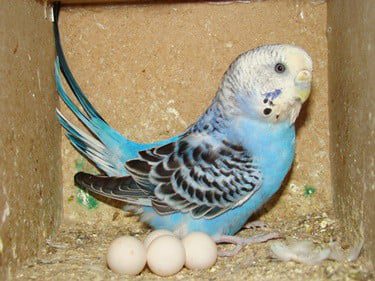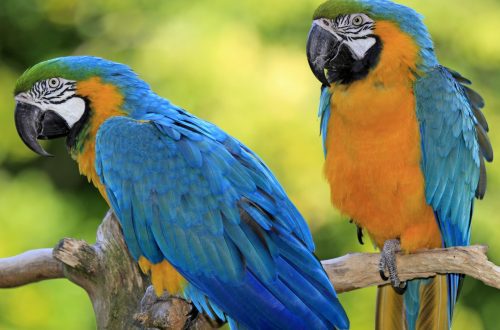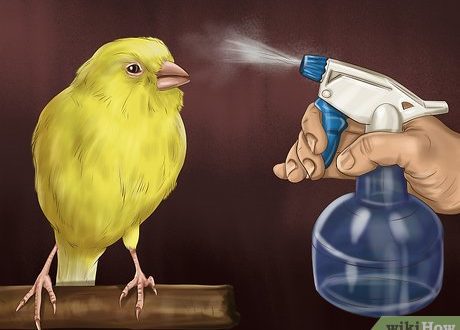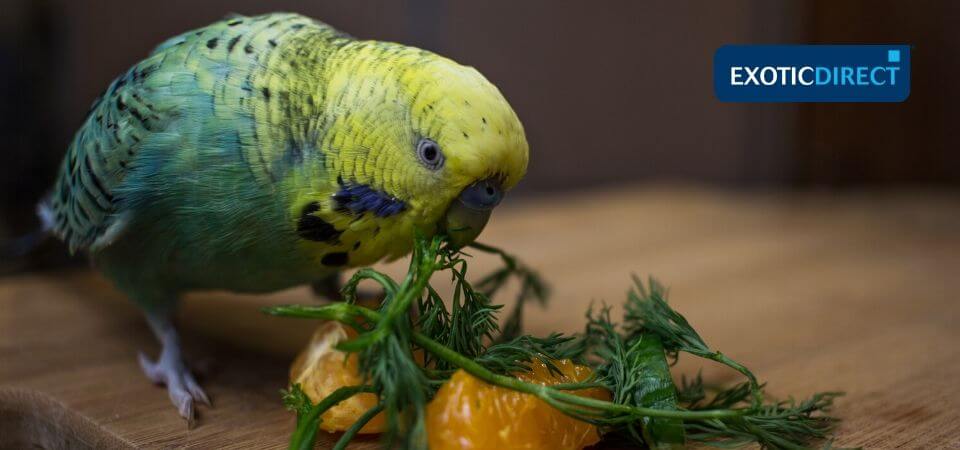
What to feed budgerigars other than food
Budgerigars are very active birds, in the wild they manage to quickly adapt to weather and territorial conditions. Therefore, the daily diet of wild wavy is extremely diverse: fresh shoots / buds of trees and shrubs, grass seeds and all kinds of grains from farm fields, fruits, berries, and as a drink, if there are no water bodies nearby, parrots are content with dew or juicy fruits and young grass.
Wild budgerigars instinctively keep their body in a healthy shape, while domestic birds are completely dependent on our knowledge of the proper nutrition of parrots. It will be useful for the owner to know what to feed the budgerigar, in addition to the standard food.
At home, in the diet of a parrot, diversity should also be adhered to.
Let us consider in more detail the menu of a home budgerigar:
- Hard food – This is the main component in the diet of a parrot. An adult is enough 2 teaspoons of grain per day. But, it happens that a bird needs a little more grain – everything is very individual.
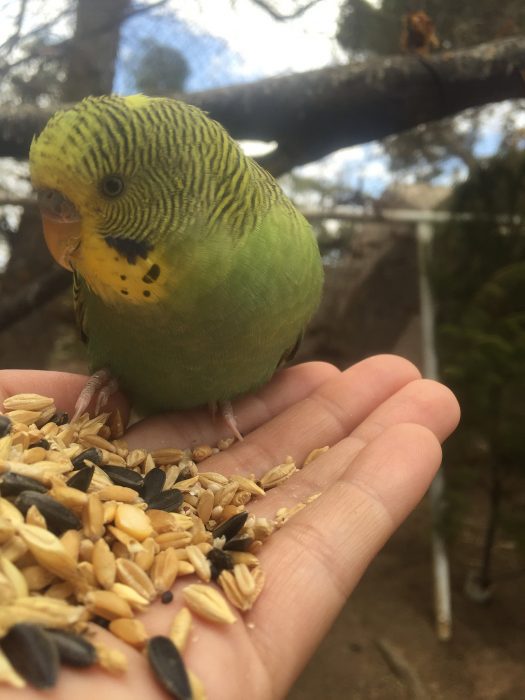
Budgerigars peel each grain of the shell, so the appearance of a full feeder can be created, although in reality it is already empty.
The grain mixture must be kept in the feeder at all times.
- germinated food – a very useful and vitamin-rich “live” product. In this form, the grain is very well absorbed, and the bird receives a huge amount of macro- and microelements, as well as vitamins.
Unlike everyday food, the soaking mixture itself has a more complex composition by components: chickpeas, mung beans, green and red lentils, oats, wheat, alfalfa, barley, rapeseed, safflower, millet, sunflower seeds, vetch, sorghum, sesame, buckwheat , chumiza and mogar.
How many times a week to give germinated food depends on the age of the parrot: before the first molt -1 teaspoon 2 times a week, after it – less often, since swollen nutritious grains stimulate the production of sex hormones.
Flax and hemp seeds should not participate in soaking!
- mineral mix – necessary for the correct formation of the skeleton and feathers. This is an indispensable assistant in improving the digestion of birds.
The composition of the mineral mixture: 70% shell rock, 30% crushed chalk, fraction 2-3 mm, boiled egg shells and charcoal in a ratio of 1:1. You can buy mineral mix at a pet store. Sometimes it includes oyster shells, corals, pine nut shells, fine sandstone and sea shells.
During the molting period, sulfur should be added to the mixture (for 2 teaspoons of the mineral mixture – a small pinch of sulfur).
The constant presence of the mixture in a separate feeder (2-3 teaspoons with replacement every 1-2 weeks).
- Mineral stone and sepia (cuttlefish shell) – enrich the parrot’s body with calcium, magnesium, phosphorus, and the bird also willingly grinds its beak about them.
- Kashi – improve metabolism, a rich source of trace elements, cook on water (buckwheat / oatmeal / hercules / lentils – cook for 10 minutes, but you can steam it, pearl barley – 30 minutes, barley / corn / wheat / millet / rice – 20 minutes). Calculation: 2 teaspoons per bird, porridge should be warm, in a separate feeder. Feed 3 times a week.
- Fruits and vegetables – an irreplaceable source of vitamins. Here you will find a complete list of approved budgerigar products. You can feed them several times a day.
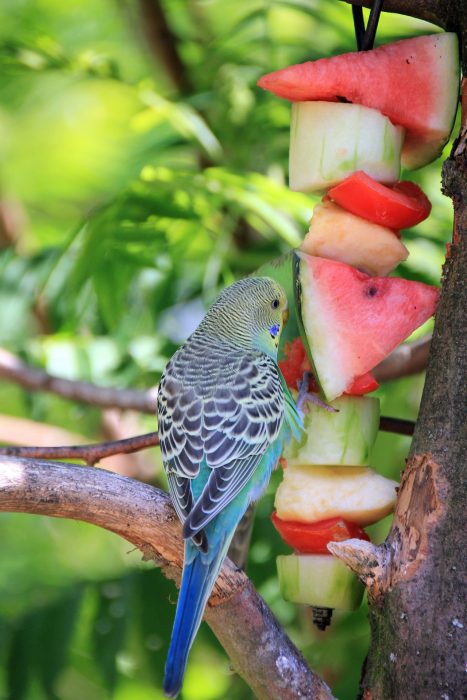
7. Greens – tops of carrots, peas, hedgehog, barnyard, strawberry leaves, Ivan tea, canary grass, chicken millet, flax, foxtail, mung bean, wood lice, clover, bluegrass, oats, dandelion, shepherd’s purse, nasturtium, perennial chaff, plantain, marsh bentweed , millet, wheat, couch grass, chamomile, lettuce, leaf lettuce, goutweed, knotweed, timothy grass, chicory, spring and autumn willow leaves, thin branches of young trees with buds and leaves. In the cold season, you can use your parrot’s food to grow fresh herbs.
If you are not sure whether it is possible to give a particular herb to a parrot, do not give it.
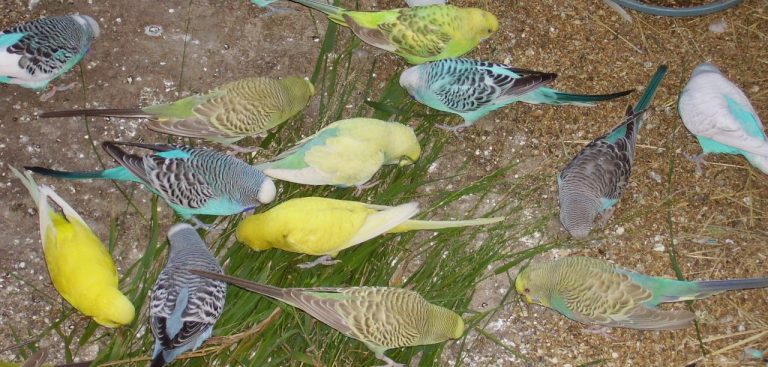
List of herbs that parrots should not: basil, St. John’s wort, cilantro, onion, buttercup, parsley, tansy, wormwood, celery, yarrow, dill, horsetail, celandine, sorrel, hyssop.
8. fruit tree branches – budgerigars love to gnaw everything and this will be the best and most useful option for them.
To extract “nibbles” should be away from roads and industrial areas. At home, soak the branches for 4 hours in water, wash well and pour over with boiling water. The use of any detergents is dangerous for the life of the bird. There should be no tree resin on the branches.
Can branches: apple, currant, mountain ash, alder, citrus, birch, linden, maple, willow, chestnut, cherry, alder, mountain ash, plum, viburnum, beech, hornbeam, hawthorn, sea buckthorn, red chokeberry and hazel.
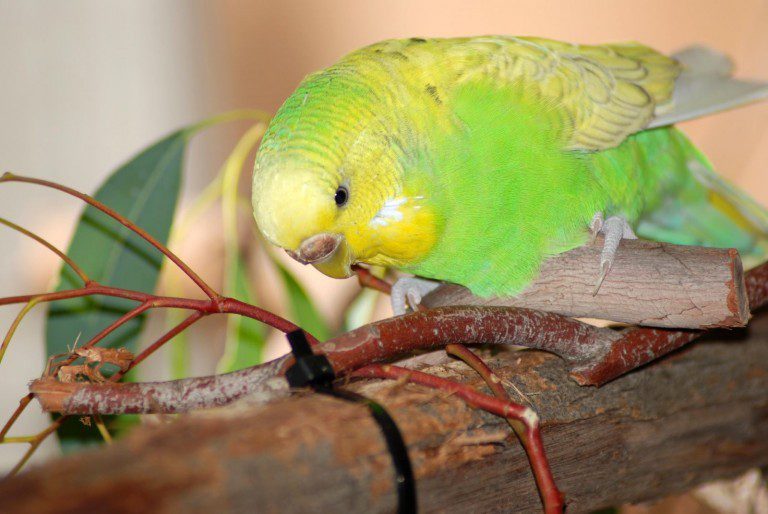
You can not give branches: lilac, elderberry, conifers, bird cherry, acacia, coffee tree and oak.
9. Treats – pampering our pets is worth only natural products.
What can you feed: red millet in spikelets, chumiza, paiza, mogar and Senegalese millet. If you give in excess, the bird will refuse to eat food, and will only wait for treats. If this is a spikelet, then it is enough to give one small twig-ball per day.
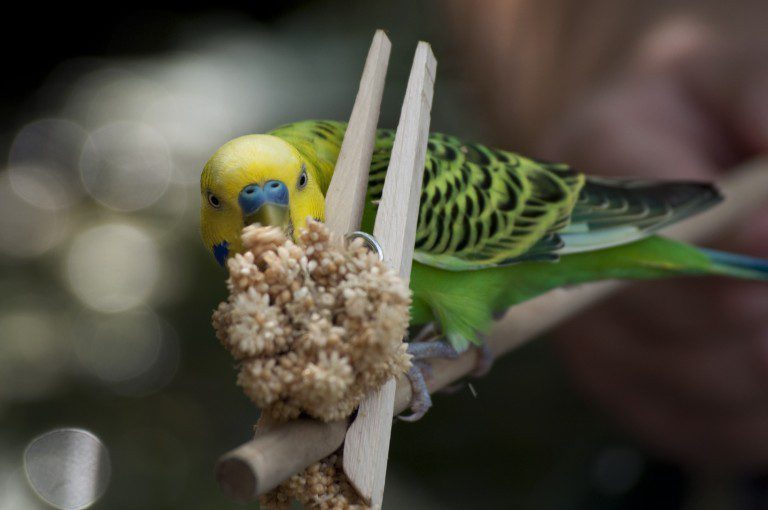
It is categorically impossible: nuts, cones, seeds and grains (some of these are present in the main food, but in a minimal amount, as they are very nutritious and contain fats and affect the functioning of the liver and gastrointestinal tract in a greater volume). Also, do not buy all kinds of sticks (egg, honey, cereal) – they contain a lot of sugar, dyes, dry vitamins, preservatives and grain of dubious quality.
10. Vitamins. If your bird needs vitamin supplements, then you should buy drugs at pet stores and veterinary pharmacies. When taking a course of vitamins, exclude fruits and vegetables from the diet so that the bird receives moisture only from fortified water. Water should be changed twice a day, as water quickly deteriorates and vitamins lose their properties.
You can give: Trixie Mauser drops, Beaphar Mauser drops, Beaphar Lebensvitamine Vinka или Vita Sol Multi Vitamin.
Before the first molt, it is not recommended to give vitamins to a budgerigar!
11 Water – the most important component of poultry nutrition. Water should be clean, fresh and always present in the drinker.
Now, knowing how to feed a budgerigar at home, you can easily create the best option for a tasty and healthy menu for a bird.
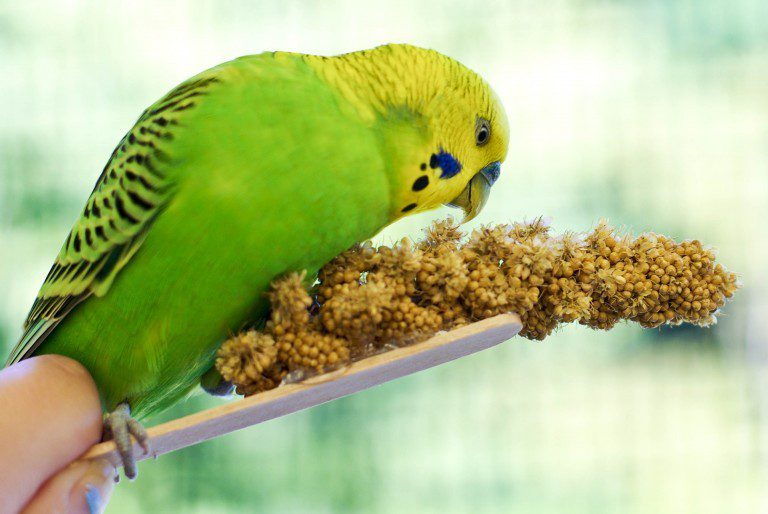
What not to feed budgerigars
List of prohibited products: salt, sugar, bread, nuts and seeds, milk, dairy products, cheese, sausage, meat, fish, mushrooms, coffee, chocolate, chips, alcohol, fruits prohibited for birds, vegetables and herbs, canned foods, boiled vegetables, food from human mouth.
The diet of small chicks before the first molt (3-4 months) differs only in that a boiled egg and cottage cheese are added, as well as sprouted grain in a much larger amount.
The digestive system of a budgerigar is designed to digest grains and assimilate the bark of young trees, grass, fruits and berries, if your bird receives all these components – good health and cheerful chirping of a budgerigar are provided for you for many years to come.



